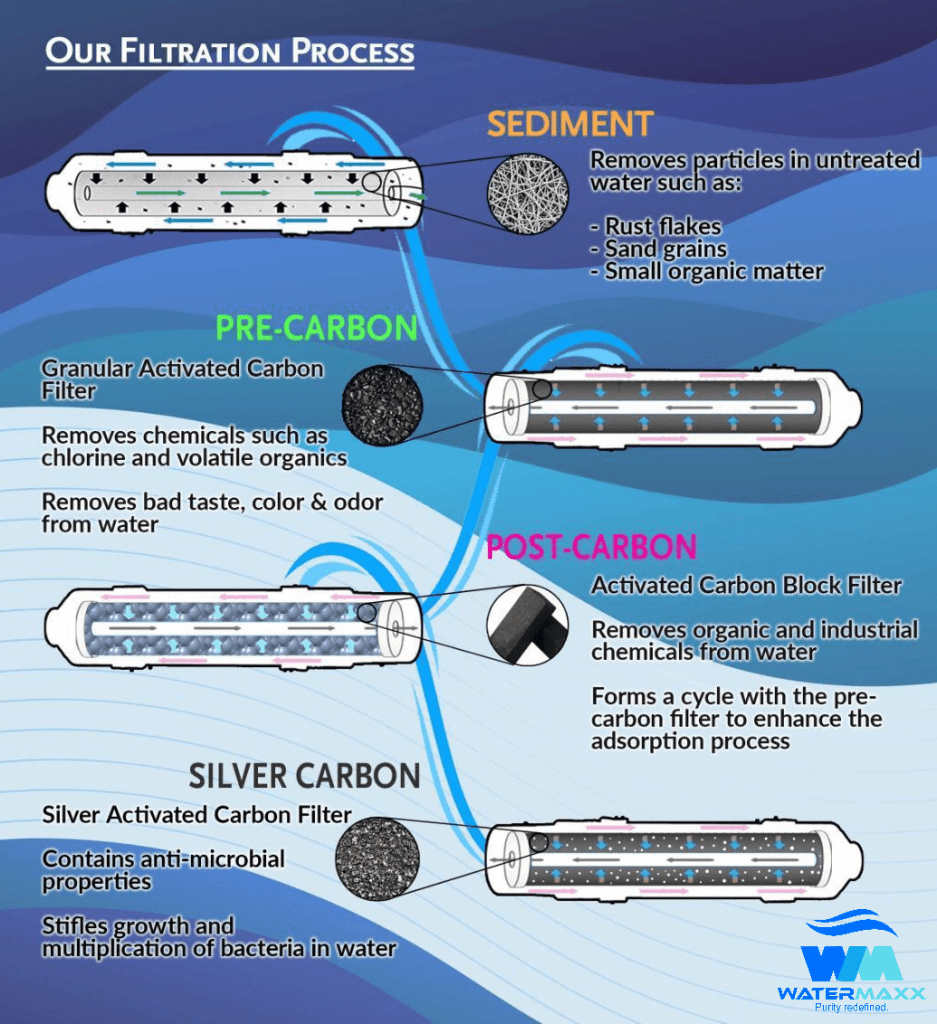Water Filters and how they work in Water Dispensers
Hello world! This is Blog post number 1 by us, Watermaxx Pte Ltd. We will be giving you interesting facts, do’s and don’ts and perhaps even some advice that may go a long way in helping you decide on your filtered water choices.
As we all know, we see many different dispensers out there today, each in their own way, seemingly cutting edge.
So what makes them different?
What makes one dispenser a better buy than the other?
Or rather what makes one dispenser more useful than the other?
Before we head down that road, we must understand, Water Dispensers are just that. They dispense water. That is their function. That is what they do. At their core, other than dispensing water, their main function is to heat or chill water. Cleaning the water however, is done completely by the Drinking Water Filters they are attached to. So how does this exactly happen?
Each filter is designed to serve a very specific purpose:
Sediment Filters: These are designed to remove suspended solids aka sediments, turbidity or particulates from water. It basically functions like a net that catches unwanted dirt particles as water flows through it. Sediment filters are mostly always used as the first filter as they protect the other filters and the Water Dispenser from damage.
Activated Pre & Post Carbon Filters: These 2 filters form a cycle that absorb excessive chlorine, pesticides, herbicides and other harmful organic chemicals from the water. They also remove bad taste and get rid of any odor hence enhancing the flavor and giving water a crisp but softer feel.
Ultra-filtration (UF) Membrane filters: These filters use a size exclusion mechanism to separate colloids, proteins, bacteria, pyrogens, proteins and macromolecules larger than the membrane pore size from water.
Silver Carbon Filters: These filters cause bacteria to lose their replicating abilities and is specifically used to control bacterial growth in water and also prevent contamination of the activated carbon filters.
Alkaline Filters: Help to replenish minerals like ionized calcium, magnesium, sodium and potassium which are removed when water is purified. This improves the quality of clean water by enhancing it with minerals readily found in natural mineral water.
Now that you have knowledge of what different Drinking Water Filters do, you’re better equipped to make more ‘filtered’ decisions in this case.
We don’t want to overreach with our first post. We’ll be sure to give you more information in future posts so stay tuned. 🙂

Like what you read? Why not share it with your friends?
